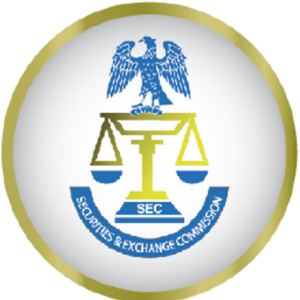October 31, 2018/CBN
The CBN on February 27, 2017 issued the Exposure Draft on the Codes of Corporate Governance for Other Financial Institutions in Nigeria, and comments received from stakeholders subsequent thereto had been incorporated in the Guidelines as appropriate.
Pursuant to the provisions of Sections 33 subsection (1) (b) of the CBN Act No.7 of 2007; and Sections 57, 61- 63 of the Banks and Other Financial Institutions Act (BOFIA) of 1991 (as amended), the CBN hereby issues the Codes of Corporate Governance in respect of the under-listed six Other Financial Institutions:
Microfinance Banks
Development Finance Banks
Primary Mortgage Banks
Mortgage Refinance Companies
Finance Companies
Bureaux De Change
Relevant institutions are required to ensure strict compliance with their respective sector code. The full implementation of the codes shall come into effect from April 1, 2019.
Proshare Nigeria Pvt. Ltd.
Central Bank of Nigeria – Code of Corporate Governance For Microfinance Banks In Nigeria
1.0 Introduction
In view of the importance of micro and small enterprises to the growth of an economy, the Central Bank of Nigeria (CBN) in 2005 introduced the Microfinance Policy and Regulatory Framework to support the development of the sub-sector. However, by 2014, some of the licensed Microfinance Banks (MFBs) had become insolvent, a development largely attributed to poor governance practices and gross insider abuses.
To strengthen corporate governance practices in MFBs in Nigeria, the CBN, pursuant to the provisions of Section 2(d) of the CBN Act 2007 and Section 57 of the Banks and Other Financial Institutions Act (BOFIA) CAP B3 LFN 2004, hereby issues this Code of Corporate Governance for Microfinance Banks in Nigeria.
The objectives of the Code are to:
a) Define minimum acceptable corporate governance standards for all licensed MFBs in Nigeria;
b) Promote high ethical standards among operators; and
c) Enhance public confidence in MFBs in
1.1 Application
The code shall apply to all licensed MFBs in Nigeria.
2.0 Board Of Directors And Management
2.1 Responsibilities of the Board
2.1.1 The Board shall be accountable and responsible for the performance and affairs of the MFB. Specifically, and in line with the provisions of the Companies and Allied Matters Act (CAMA) 1990 (as amended), Directors owe the MFB the duty of care and loyalty to act in the interest of the MFB’s shareholders and other stakeholders.
2.1.2 Members of the Board are severally and jointly liable for the activities of the MFB.
2.1.3The Board shall define and document the MFB’s strategic goals, approve its long and short-term business strategies and monitor their implementation by management.
2.1.4 The Board shall determine the skills, knowledge and experience that members require which shall, at the minimum, be in line with the requirements of the Approved Persons Regime.
2.1.5 The Board shall ensure that its human, material and financial resources are effectively deployed towards the attainment of set goals of the MFB.
2.1.6The Board shall appoint the CEO as well as top management staff and establish a framework for delegation of authority in the MFB, which shall comply with extant regulations issued by the CBN from time to time.
2.1.7 The Board shall establish and monitor agreed performance targets for the management.
2.1.8The Board shall set limits of authority, specifying the threshold for large transactions which it must approve before they take place.
2.1.9The Board shall ensure that a succession plan is in place for the MD/CEO for Unit MFBs; and MD/CEO and executive directors for state and National MFBs.
2.1.10 The Board shall consider, approve and monitor the implementation of the MFB’s budget, including setting expenditure limits for management and Board Committees.
2.1.11The Board shall approve credit facilities in line with the approved limits of authority of the MFB.
2.1.12 The Board shall ensure strict adherence to the Code of Conduct for Directors of Banks and Other Financial Institutions in Nigeria.
2.2 Composition and Size of the Board
2.2.1 The minimum and maximum number of Directors on the boards of MFBs shall be five (5) and seven (7) for Unit MFBs; five (5) and nine (9) for State MFBs; and seven (7) and twelve (12) for National MFBs, respectively.
2.2.2 The MD/CEO shall be the only Executive Director of a Unit MFB.
2.2.3 Members of the Board shall be persons of proven integrity and shall meet the requirements of the Revised Assessment Criteria for Approved Persons’ Regime for financial institutions. At least two (2) members of the Board of Directors other than the Executive Directors shall be required to have banking or related financial industry experience.
2.2.4 The Board shall consist of Executive and Non-Executive Directors. The number of Non-Executive Directors shall be more than that of Executive Directors.
2.2.5 The Board of MFBs shall consist of a minimum of one (1) Independent Non- Executive Director (INED) for Unit MFBs and state MFBs and two (2) for National MFBs. However, a state MFB with a Board size of more than 7 members shall be required to have a minimum of two (2) INEDs. An Independent Director is a member of the Board of Directors who has no direct material relationship with the MFB or any of its officers, major shareholders, subsidiaries and affiliates.
2.3 Separation of Powers
2.3.1The positions of the Board Chairman and the MD/CEO shall be separate. No one person shall combine the two positions in any MFB at the same time. For the avoidance of doubt, no executive Vice Chairman shall be allowed in the Board structure.
2.3.2 Not more than two members of a family shall be on the board of an MFB at the same time. The expression ‘family’ includes director’s spouse, parents, children, siblings, cousins, uncles, aunts, nephews, nieces and in- laws.
2.3.3 Where the MFB is a member of a holding company, not more than two family members shall be allowed to serve on the Boards of the MFB and the holding company.
2.3.4 No two members of a family shall occupy the positions of Chairman and MD/CEO or Executive Director of the MFB and Chairman or MD/CEO of an MFB’s subsidiary at the same time.
2.4 Appointment and Tenure
2.4.1 Members of the Board of Directors shall be appointed by the shareholders and approved by the CBN.
2.4.2To qualify for the position of a Non-Executive Director, it is required that the nominee shall not be an employee of a bank or other financial institution, except where the MFB is promoted by the bank or other financial institution and the proposed director is representing the interest of such an institution.
2.4.3 The procedure for appointment to the Board shall be formal, transparent and documented in the Board charter.
2.4.4 The appointment to the Board of Microfinance Banks shall be in accordance with extant regulations issued by the CBN from time to time.
2.4.5 The track record of appointees shall be an additional eligibility requirement. Such records shall cover both integrity and past performance, in accordance with extant CBN guidelines.
2.4.6 To ensure continuity and injection of fresh ideas, Non-Executive Directors of MFBs shall serve for a maximum of three (3) terms of four (4) years each.
2.4.7 The term of office of an Independent Director shall be 4 years for a single term and a maximum of 8 years of two consecutive terms if re-elected upon the expiration of the first term.
2.4.8 The tenure of the MD/CEO of the MFB shall be in accordance with the terms of engagement subject to a maximum period of ten (10) years. Such tenure shall be broken down into periods not exceeding five (5) years at a time. Any person who has served as MD/CEO for the maximum tenure (of ten years) in an MFB shall not qualify for appointment in any capacity in the same MFB or its subsidiaries until after a period of three (3) years after the expiration of his tenure as MD/CEO.
2.4.9 Where the MFB is a member of a Group or is owned by another financial institution, a director in the MFB may be allowed to serve on the Boards of the MFB and its holding company at the same time, provided the aggregate number of directors from the subsidiaries and associates at any point in time shall not exceed 30 per cent of the membership of the Board of Directors of the holding company.
2.4.10 To enhance effectiveness, all Directors shall have access to corporate information under conditions of confidentiality; undergo training and continuing education and have access to independent professional advice.
2.5 Board Committees
2.5.1 The Board shall at the minimum, establish the following Committees:
a) Risk Management Committee
b) Audit Committee
c) Board Governance and Nominations Committee
d) Board Credit Committee
The functions of Risk Management and Audit may be carried out by one committee for a Unit or State MFB. This is without prejudice to the requirements of CAMA 1990 (as amended) on the Statutory Audit Committee which is not a Board Committee.
Each MFB shall have a Risk Officer and Internal Auditor who shall report directly to the Committee(s) responsible for Risk Management and Audit function(s) respectively.
2.5.2 Where there is a Remuneration Committee in addition to the four Committees prescribed in Section 2.5.1, the membership shall comprise NEDs only. Where both Committees (Remuneration Committee and Governance & Nominations Committee) are combined, its membership shall be drawn only from NEDs.
2.5.3 The Remuneration Committee shall determine the remuneration of Executive Directors and management.
2.5.4 The Board and its Committees shall each have a charter to be approved by the CBN. The charters shall be reviewed every three (3) years or as may be determined by the CBN from time to time.
2.5.5The Chairman of the Board shall not be a member of any Board Committee.
2.5.6 All Board Committees shall be headed by Non-Executive Directors (NEDs).
2.5.7 The Board Audit Committee (BAC) shall have unrestricted access to the financial records of the bank including external auditors’ reports.
2.5.8 The MD/CEO and other Executive Directors (EDs) shall not be members of the BAC.
2.5.9 The Board Credit Committee shall comprise members knowledgeable in credit analysis.
2.5.10 The Board shall not replace members of the BAC and External Auditors at the same time.
2.6 Board/Board Committees Meetings
2.6.1 To effectively perform its oversight functions and monitor management’s performance, the Board and each of the Board Committees shall meet at least once every quarter.
2.6.2Minutes of meetings of the Board/Board Committees shall be properly written in English language, adopted and signed off by the Board/Committee Chairman and Secretary, pasted in the minutes book and domiciled at the MFB’s Head Office.
2.6.3 Every Director shall attend all meetings of the Board, and Board Committees in which he is a member. In order to qualify for re-election, a Director must have attended at least two-thirds of all Board and Board Committee meetings in each financial year.
2.6.4 Board/Board Committee meetings shall be deemed to be duly constituted where two-thirds of members are present, provided that a majority of directors at the meeting are Non-Executive Directors’ (NEDs).
2.6.5 The Board shall disclose, in the Corporate Governance Section of the Annual Report, the total number of Board and Board Committee meetings held in the financial year and attendance by each Director.
2.7 Remuneration
2.7.1 MFBs shall align executive and Board remuneration with the long term interests of their institutions and their shareholders.
2.7.2 Levels of remuneration should not be excessive but sufficient to attract, retain and motivate executive officers, management and members of staff of the MFB.
2.7.3 Where remuneration is linked to performance, it shall be designed in such a way as to prevent excessive risk taking.
2.7.4 Every MFB shall have a remuneration policy put in place by the Board of Directors, which shall be disclosed to the shareholders in the annual report.
2.7.5 The MD/CEO and other Executive Directors shall not receive sitting allowances and Directors’ fees.
2.7.6 Non-Executive Directors’ (NEDs) remuneration shall be limited to Directors’ fees, sitting allowances for Board and Board Committee meetings and reimbursable travel and hotel expenses. NEDs shall not receive salaries and benefits whether in cash or in kind, other than those mentioned above.
2.7.7 Where share options are adopted as part of executive remuneration or compensation, the Board shall ensure that the stock options are not priced at a discount except with the prior authorization of the relevant regulatory agencies.
2.7.8 Share options shall be tied to performance and subject to the approval of shareholders at AGMs.
2.7.9 Share options shall not be exercisable until one year after the expiration of the tenure of the Director.
2.7.10 MFBs shall disclose in their annual reports, details of the shares held by Directors and their related parties.
2.8 Board Appraisal
2.8.1 There shall be annual Board and Directors’ appraisal covering all aspects of the Board’s structure, composition, responsibilities, processes, relationships and performance or as may be prescribed by the CBN.
2.8.2 The annual Board appraisal shall be conducted by an independent consultant. The report shall be presented to shareholders at the AGM and a copy forwarded to the CBN by the independent consultant, not later than March 31 of the following year.
3.0 Shareholders
3.1 Rights and Functions of Shareholders
3.1.1 Shareholders shall have the right to obtain relevant and material information from the MFB on a timely and regular basis.
3.1.2 Shareholders shall have the right to participate actively and vote in general meetings.
3.1.3 In addition to the traditional means of communication, MFBs are encouraged to have a website and communicate with shareholders via the website, newsletters, Annual General Meetings (AGMs) and/or Extraordinary General Meetings (EGMs). Such information shall include major developments in the MFB, risk management practices, executive compensation, establishment of investment in subsidiaries and associates, Board and top management appointments, sustainability initiatives including Corporate Social Responsibilities (CSR), and any other relevant information.
3.2 Equity Ownership
3.2.1 Except where prior approval of the CBN is granted, no individual, group of individuals, their proxies or corporate entities and/or their subsidiaries shall own controlling interest in more than one (1) MFB.
3.2.2 In order to discourage government from having majority shareholding in MFBs, government direct and indirect equity holding in any MFB shall be divested to private investors within a maximum period of five (5) years from the date of investment and limited to 10%. For existing investment above five years, the MFB shall within two (2) years from the commencement of this Code comply with this provision.
3.3 Protection of Shareholders’ Rights
3.3.1 Every shareholder shall be treated fairly.
3.3.2 The Board shall ensure that minority shareholders are adequately protected from overbearing influence of controlling shareholders.
3.3.3 The Board shall ensure that the MFB promptly provides to shareholders documentary evidence of ownership interest in the MFB such as share certificates, dividend warrants and related instruments. Where these are rendered electronically, the Board shall ensure that they are sent in a secure manner.
3.4 General Meetings
3.4.1 Notice of general meetings shall be as prescribed by the Companies and Allied Matters Act (CAMA) 1990 as amended.
3.4.2 The Board shall ensure that all general meetings of the shareholders hold at a convenient and easily accessible venue to the majority of shareholders.
3.4.3The Board shall ensure that unrelated issues for consideration are not lumped together at general meetings. Statutory business shall be clearly and separately set out. Separate resolutions shall be proposed and voted on each substantial issue.
3.4.4 The Board shall ensure that decisions reached at general meetings are properly and fully implemented.
3.5 Shareholders’ Associations
3.5.1 The Board shall ensure that dealings of the MFB with shareholders’ associations are in strict adherence with the Code of Conduct for Shareholders’ Associations issued by the Securities and Exchange Commission (SEC). Where a MFB is not listed, its dealings with the Association shall be transparent and in line with the relevant governance codes.
4.0 Rights Of Other Stakeholders
4.1 Stakeholders shall have the right to freely communicate their concerns about any illegal or unethical practices to the Board. Where such concerns border on the activities of the Board, such individuals shall have recourse to the CBN in accordance with Section 3.4 of the Guidelines for Whistle Blowing for Banks and Other Financial Institutions in Nigeria.
4.2 Where stakeholder interests are protected by law, stakeholders shall have the opportunity to obtain effective redress for violation of their rights.
4.3 MFBs shall demonstrate good Corporate Social Responsibility to their stakeholders such as customers, employees, host communities, and the general public.
5.0 Disclosure And Transparency
5.1 Disclosure
5.1.1 In order to foster good corporate governance, MFBs are encouraged to make timely, accurate and robust disclosures beyond the statutory requirements in BOFIA 1991 (as amended), CAMA 1990 (as amended), and other applicable laws, regulations and standards.
5.1.2 Disclosure in the annual report shall include, but not limited to, material information on:
a) Major items that have been estimated in accordance with applicable accounting and auditing standards;
b) Rationale for all material estimates;
c) Details on Directors;
d) Governance structure;
e) Risk Assets;
f) Risk management;
g) Information on strategic modification to the core business;
h) All regulatory/supervisory contraventions during the year under review and infractions uncovered through whistleblowing, including regulatory sanctions and penalties.
i) Capital Structure/Adequacy;
j) Opening and closure of branch/cash centre (for state and national MFBs);
k) Any service contracts and other contractual relationships with related parties;
l) Frauds and Forgeries;
m) Contingency Planning Framework;
n) Contingent Assets and Liabilities (off balance sheet engagement)
5. 5.2 Transparency and Integrity in Reporting
5.2.1 MFBs shall have a structure to independently verify and safeguard the integrity of their financial reporting, which shall:
entail the review and consideration of the financial statements by the BAC; and
enhance the independence and competence of the MFB’s internal and external auditors.
5.2.2 The BAC shall be structured in such a way that it:
has at least three members.
consists of NEDs;
iii. is chaired by an independent NED (INED) except in the case of a unit MFB where a NED may serve as chairman.
5.2.3 The BAC shall be independent and possess technical expertise to discharge its mandate effectively.
5.2.4 The BAC shall include members who are financially literate (that is, be able to read and understand financial statements). At least one of the members shall have relevant qualifications and experience (that is, shall be a qualified accountant or other finance professional with experience in finance and accounting matters).
5.2.5 The BAC shall review the integrity of the MFB’s financial reporting and oversee the independence of the internal and external auditors.
5.2.6 The BAC shall meet at least once every quarter. Deliberations shall include at least consideration of the quarterly reports of the internal auditor. All audit queries shall be investigated and resolved promptly.
5.2.7 Every MFB shall have a Chief Compliance Officer (CCO) whose responsibility shall include monitoring compliance with the corporate governance code and Anti-Money Laundering and Combating the Financing of Terrorism (AML/CFT) requirements.
5.2.8 The office of the CCO and that of the Internal Auditor may be combined in a unit and state MFB.
5.2.9 The appointment and removal of the Chief Compliance Officer/Head of Internal Audit shall be the responsibility of the Board subject to CBN’s ratification. The CBN must be notified of any change and reasons thereof, within fourteen (14) days of such change. The Head of Internal Audit shall report directly to the Board Audit Committee.
5.2.10 Appointment of external auditors shall be approved by the CBN.
5.2.11 External auditors shall:
render reports to the CBN on MFB’s risk management practices, internal controls and level of compliance with regulatory directives.
review the work of the internal auditor on each of the MFB’s key risk elements to cover risk identification, measurement, monitoring and control.
iii. review compliance with policies and internal control procedures put in place by the Board to manage and mitigate the institution’s risks.
report on the level of each key risk element as well as the composite risk profile of the MFB and make recommendations to the Board to enhance the effectiveness of risk management processes in the MFB.
v.forward copies of their report to the CBN, together with the external auditor’s management letter on the MFB’s audited financial statements.
5.2.12 External auditors of MFBs shall not provide client services that shall amount to conflict of interest and self-review including the following:
Bookkeeping or other services related to the accounting records or financial statements of the audit client;
Appraisal or valuation services, fairness opinion or contribution-in-kind reports;
iii. Actuarial services;
Internal audit outsourcing services; and
v.Management or human resource functions including broker or dealer, investment banking services and legal or expert services.
5.2.13 The tenure of auditors in a given MFB shall be for a maximum period of ten(10) cumulative years after which the audit firm shall not be re-appointed in the MFB until after a period of another five (5) consecutive years.
5.2.14 An audit firm shall not provide audit services to a MFB if one of the MFB’s top officials (Directors, Chief Finance Officer, Chief Audit Officer, etc.) was employed by the firm and worked on the MFB’s audit during the immediate past two (2) years.
5.2.15 The MD/CEO of an MFB shall certify in the statutory returns submitted to the CBN that he/she has reviewed the reports, and that based on his/her knowledge:
The report does not contain any untrue statement of a material fact.
The financial statements and other financial information in the report, fairly represent, in all material respects the financial condition and results of operations of the MFB as of, and for the periods presented in the report.
5.2.16 Rendition of false information to the CBN shall attract appropriate sanctions including monetary penalties and suspension of the MD/CEO for six (6) months in the first instance and possible removal.
5.2.17 There shall be due process in all the procedures of MFBs.
5.2.18All insider credit applications pertaining to directors and management staff and parties related to them, irrespective of size, shall be sent for consideration/approval to the Board Credit Committee.
5.2.19 Any director whose facility or that of his/her related interests remains non- performing for more than one year shall cease to be on the board of the MFB and could be blacklisted from sitting on the board of any other financial institution.
5.2.20 The practice/use of anticipatory approvals by Board Committees shall be limited strictly to emergency cases only and ratified at the next board meeting.
5.2.21No director-related credit facilities and/or interest thereon shall be written off without CBN prior approval.
5.3 Whistle Blowing
5.3.1 MFBs shall have a whistle-blowing policy made known to employees and other stakeholders.
5.3.2 The policy shall contain mechanisms, including assurance of confidentiality that encourages all stakeholders to report any unethical activity to the bank and/or the CBN.
5.3.3 MFBs are required to submit returns on the compliance with the whistle- blowing policy on a semi-annual basis to the Director, Other Financial Institutions Supervision Department, not later than 7 days after the end of the relevant period.
6.0 Risk Management
6.1 Every MFB shall have a risk management framework specifying the governance architecture, policies, procedures and processes for the identification, measurement, monitoring and control of the risks inherent in its operations.
6.2 The Board shall approve the risk management policies of the MFB and ensure their implementation by management.
6.3 Risk management policies shall reflect the MFB’s risk management mandate, which shall include:
Clear objectives and enterprise-wide authority for its activities;
Risk philosophy, appetite, vision and mission;
Authority to carry out its responsibilities independently;
Scope of Enterprise Risk Management (ERM);
A requirement for it to be communicated throughout the organization to promote transparency;
Periodic review to ensure continued appropriateness;
A requirement for management to report regularly on the effectiveness of the institution’s risk management processes and on its aggregate exposures compared to approved limits; and
Authority to follow-up on action taken by management in response to identified issues and related recommendations.
6.4 MFBs shall disclose a summary of the risk management policies in their annual financial statements
6.5 The risk management policy of an MFB shall clearly describe the roles and responsibilities of the Board, Board Risk Management Committee (BRMC), management and internal audit function.
6.6 Boards of MFBs shall ensure that the framework provides for regular and independent reviews of the risk management policies and procedures as well as periodic assessment of the adequacy and effectiveness of the risk management function.
6.7 The composition of the BRMC shall include at least two (2) NEDs and the Managing Director for a Unit MFB or Executive Director in charge of risk management for a State or National MFB.
7.0 Ethics, Professionalism And Conflicts Of Interest
7.1 Ethics and Professionalism
7.1.1 To make ethical and responsible decisions, MFBs shall comply with their legal obligations and have regard to the reasonable expectations of their stakeholders.
7.1.2 MFBs shall establish a code of conduct and disclose in the code or a summary of the code such information as:
the practices necessary to maintain confidence in the MFB’s integrity;
the practices necessary to take into account their legal obligations and the reasonable expectations of their stakeholders; and
iii. the responsibility and accountability of individuals reporting and investigating reports of unethical practices.
7.1.3 The Code shall:
a) commit the MFB, its Board, management and employees to the highest standards of professional behaviour, business conduct and sustainable business practices;
b) be developed in collaboration with management and employees;
c) receive commitment for its implementation from the Board and the MD/CEO and individual Directors of the bank;
d) be sufficiently detailed as to give clear guidance to users including advisers, consultants and contractors;
e) be formally communicated to the persons to whom it applies; and
7.1.4 Where applicable, MFBs shall establish and disclose a policy concerning trading in the MFB’s securities by directors, senior executives and employees. The trading policy shall contain appropriate compliance standards and procedures to ensure that the policy is properly implemented. There shall also be an internal review mechanism to assess compliance and effectiveness.
7.1.5 MFBs shall publish the policy concerning the issue of Board and employee trading in its securities.
7.2 Conflict of Interest
7.2.1 Every MFB shall have in place an approved policy on conflict of interest. The policy shall, at the minimum, cover the following areas:
a) Approval & Revision date;
b) Definition of conflict of interest;
c) Purpose of the Policy;
d) Examples of conflict of interest situations; and
e) Procedures to follow in situations of conflict of interest.
7.2.2 The Board of Directors shall be responsible for managing conflicts of interest.
7.2.3 Directors shall promptly disclose to the Board any real or potential conflict of interest that they may have regarding any matter that may come before the Board or its Committees.
7.2.4Directors shall abstain from discussions and voting on any matter in which they have or may have a conflict of interest.
7.2.5 Directors who are aware of a real, potential or perceived conflict of interest on the part of a fellow Director, have a responsibility to promptly raise the issue for clarification, at the board meeting for consideration by all members.
7.2.6 Disclosure by a Director of a real, potential or perceived conflict of interest or a decision by the Board as to whether a conflict of interest exists shall be recorded in the minutes of the meeting.
8.0 Compliance
8.1 All MFBs shall comply with the provisions of this Code. External auditors of MFBs shall report annually to the CBN, the extent of the MFB’s compliance with the provisions of this Code.
8.2Returns on the status of each institution’s compliance with this code shall be rendered to the CBN semi-annually (30th June and 31st December every year) or as may be specified by the CBN from time to time. The returns shall be addressed and submitted to the Director, Other Financial Institutions Supervision Department not later than 2 weeks after the end of the relevant reporting period.
9.0 Sanctions
Failure to comply with the Code will attract appropriate sanctions in accordance with section 64 BOFIA Cap B3 Laws of the Federation of Nigeria (LFN) 2004 or as may be specified in any applicable legislation or regulation.
10.0 Effective Date
This code shall take effect from December 1, 2018.














